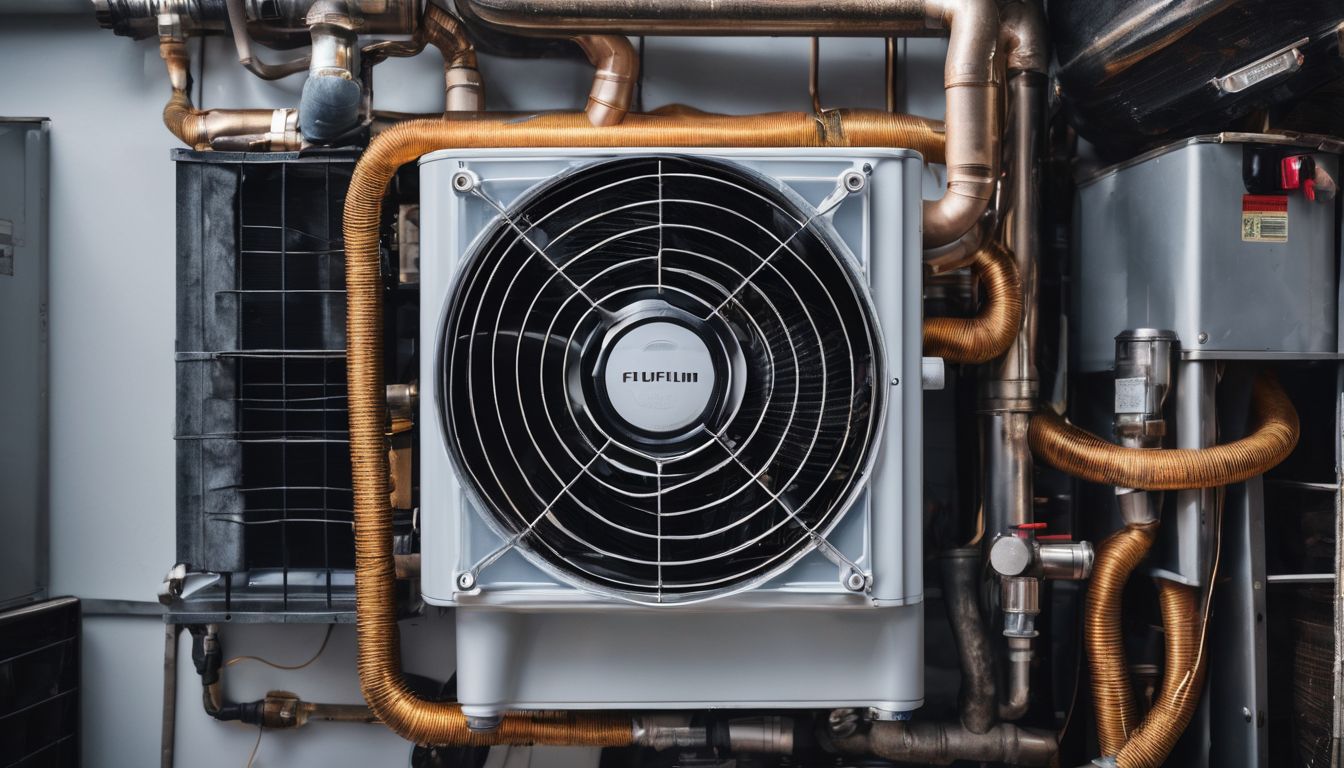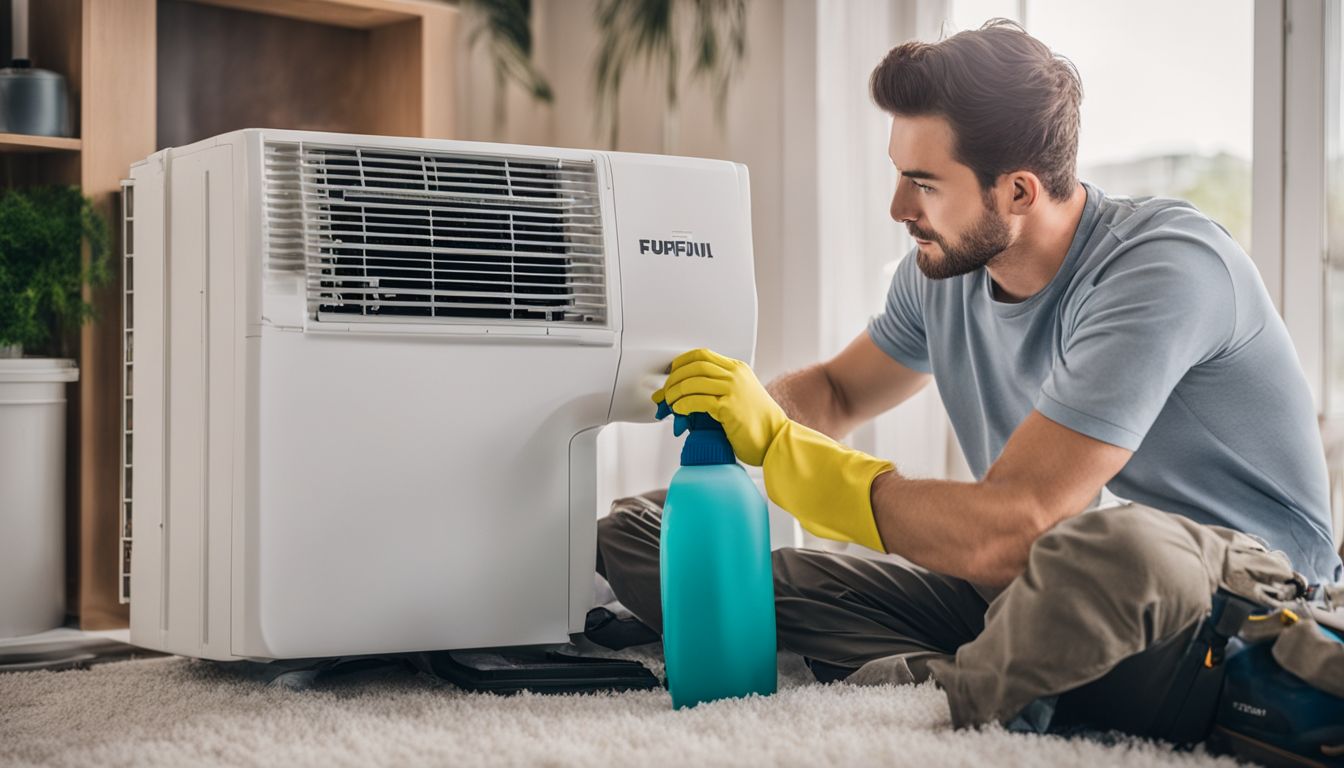If your air conditioner has been acting up lately, you might be dealing with a frozen evaporator coil. This common hiccup can throw off your entire cooling system, leading to warm air or even a full shutdown.
Our blog is here to guide you through the causes of this icy problem and provide some easy DIY solutions to get your AC back in action. Dive in and let’s melt away those frosty issues!
Understanding Frozen Evaporator Coils
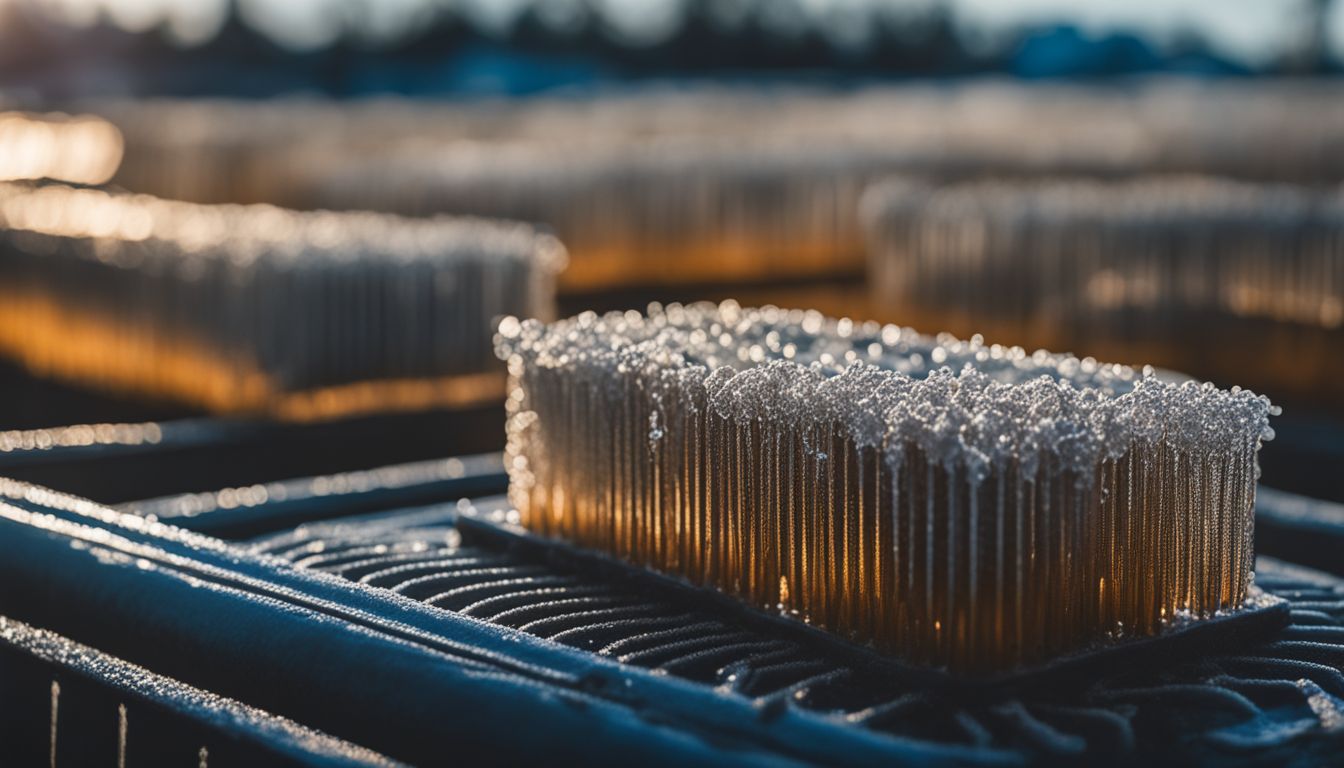
Discover how frozen evaporator coils can impact your air conditioning system, hindering its ability to efficiently cool your space and potentially causing significant damage if left unaddressed.
Learn to identify the symptoms that signal it’s time for a closer examination of this vital component.
What is an AC Coil?
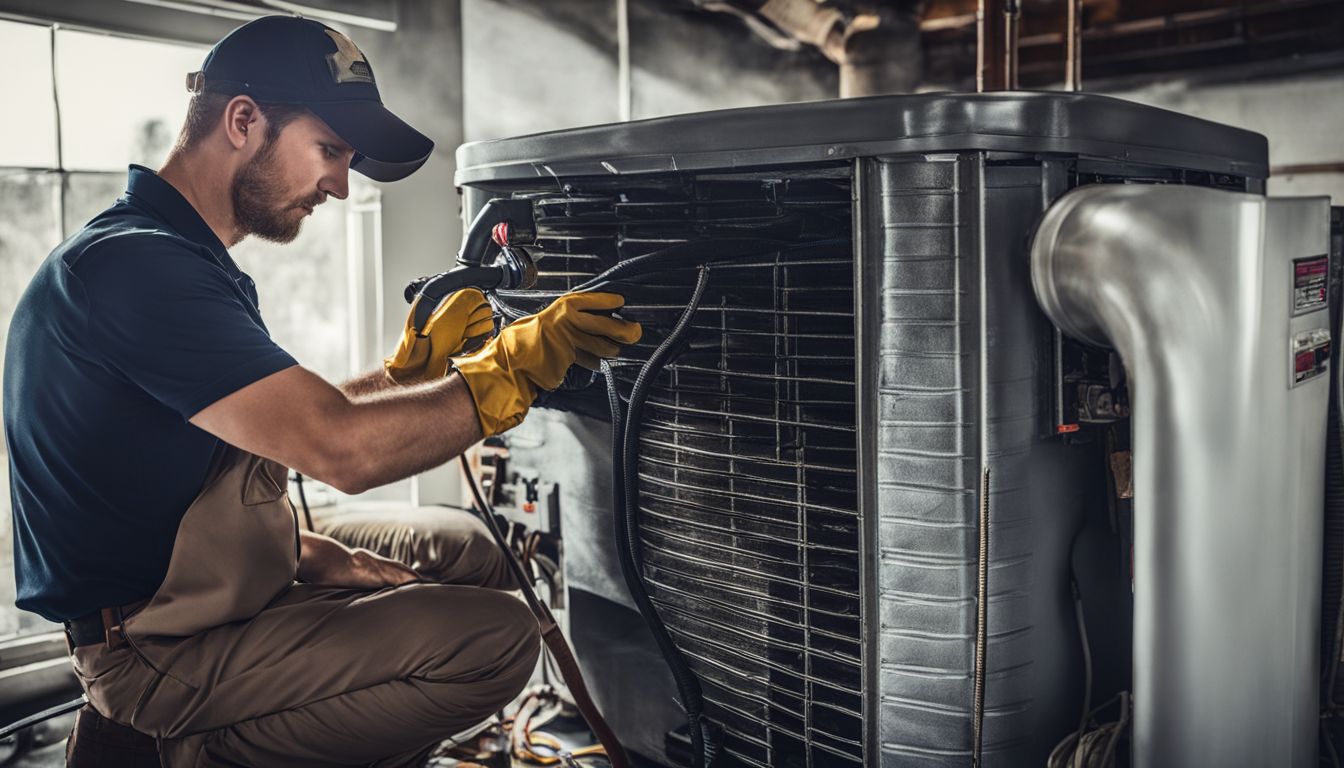
An AC coil, particularly the evaporator coil in your air conditioning unit, plays a critical role in cooling your home. It’s where the refrigerant absorbs heat from the indoor air, effectively removing warmth and helping to dehumidify the environment.
As warm air passes over these coils, it loses its heat which then transforms into cool air that gets circulated back into your rooms.
These coils are vital for efficient operation but can become problematic if they freeze up. Ice build-up on evaporator coils not only disrupts this process but may also cause extensive damage to other parts of the HVAC system.
Keeping them clean and functioning properly is essential for maintaining a comfortable indoor temperature and avoiding costly repairs or replacements down the line.
Signs of a Frozen Evaporator Coil

If your vents are pushing out less air than usual, it’s time to suspect a frozen evaporator coil in your HVAC unit. This drop in airflow is often the first clue that ice is forming on the coils and hindering their capacity for heat absorption.
Spotting ice or frost directly on the evaporator coils themselves confirms this issue. In many cases, these icy build-ups block normal function and can cause significant damage if not addressed promptly.
Leaks or puddles near your indoor air handler shouldn’t be ignored either; they’re telltale signs of melting ice from a previously frozen coil. These signs warrant immediate attention to prevent water damage and maintain optimal performance of your air conditioning system.
Keeping an eye out for these indicators will help ensure that you catch any freeze-ups quickly, avoiding extended inconvenience and costly repairs by a professional HVAC technician.
Causes of Frozen Evaporator Coils
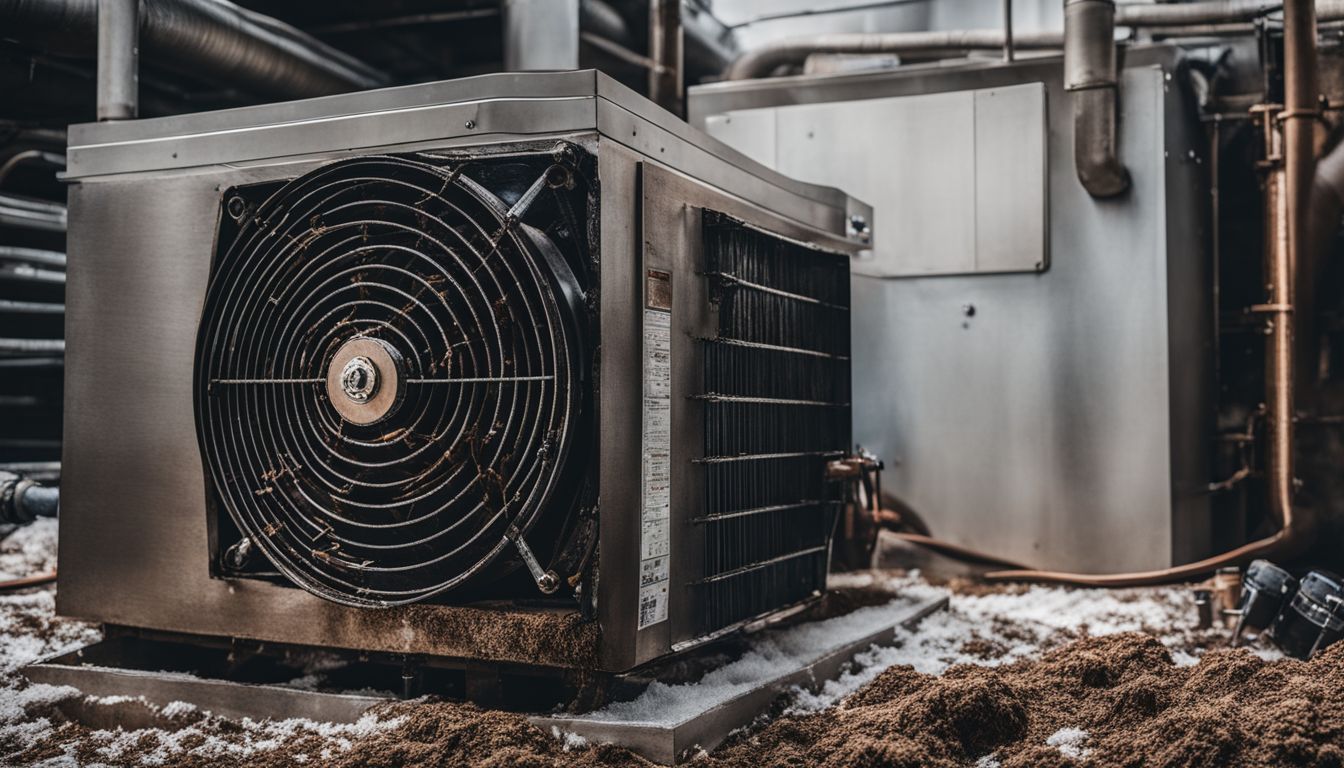
Investigating the root of frozen evaporator coils is essential, as this common issue often stems from factors that hinder the system’s ability to efficiently exchange heat. Let’s delve into the underlying problems which can disrupt your AC unit’s performance and lead to an icy predicament.
Dirty Filters and Coils
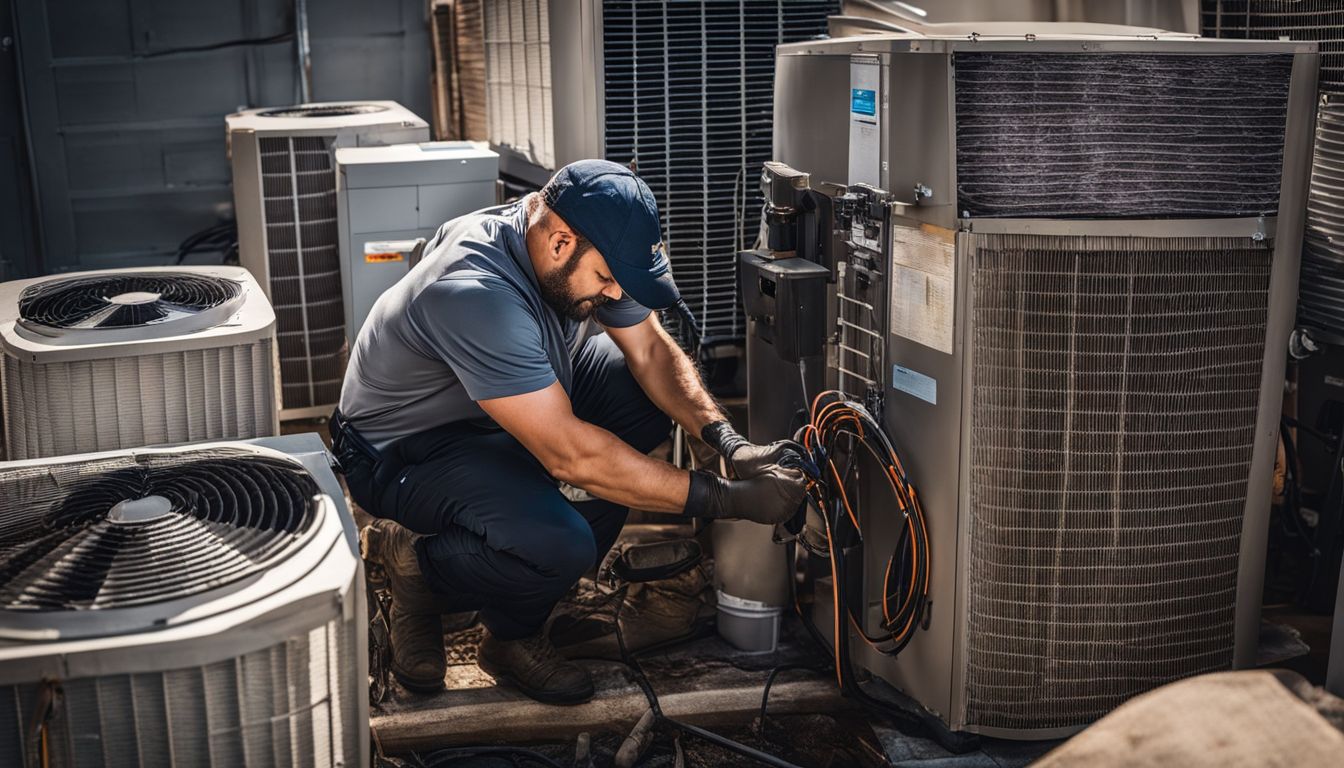
Dirty filters are a major culprit behind frozen evaporator coils in air conditioning units. When the air filter gets clogged with dust and debris, airflow to the coil is severely restricted.
This means the coils cannot absorb enough heat, which can cause condensation on them to freeze. It’s vital for your AC’s performance to regularly check and replace dirty air filters to ensure smooth operation.
Coils covered in grime work inefficiently as well. The build-up of dirt insulates against heat exchange, causing the system to struggle and possibly overheat. A clean evaporator coil is essential for effective cooling, so cleaning it should be part of routine maintenance for any heating and cooling system.
Neglecting this task results not only in a drop in cooling power but also risks damaging critical components like the compressor.
Low Refrigerant Level
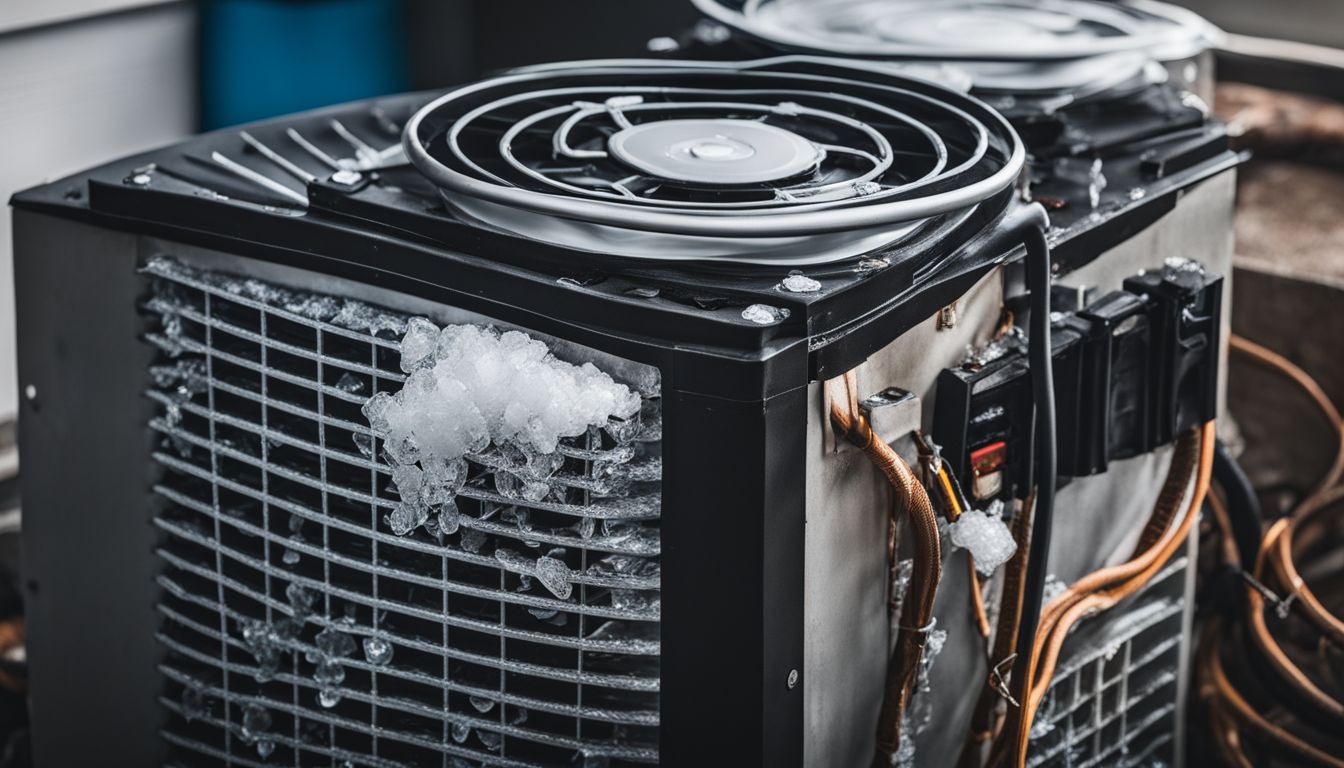
Having enough refrigerant is crucial for your AC to operate smoothly. It’s the lifeblood of the system, circulating through pipes to absorb and dispose of heat from your home. If levels drop too low, usually due to leaks, the entire balance goes haywire.
The evaporator coils can’t absorb enough latent heat from the air inside your house. This disruption may result in part of those coils icing up because they get too cold.
A partially frozen coil strains the whole A/C system, forcing it to work harder and increasing wear on its parts. Ice buildup on these coils isn’t just a cooling issue – it puts your system at risk for more serious damage that could hit your pocket hard down the line.
So if you spot frost on those important parts or notice your home not dehumidifying like before, it might indicate a low refrigerant level needing urgent attention.
Lack of Airflow
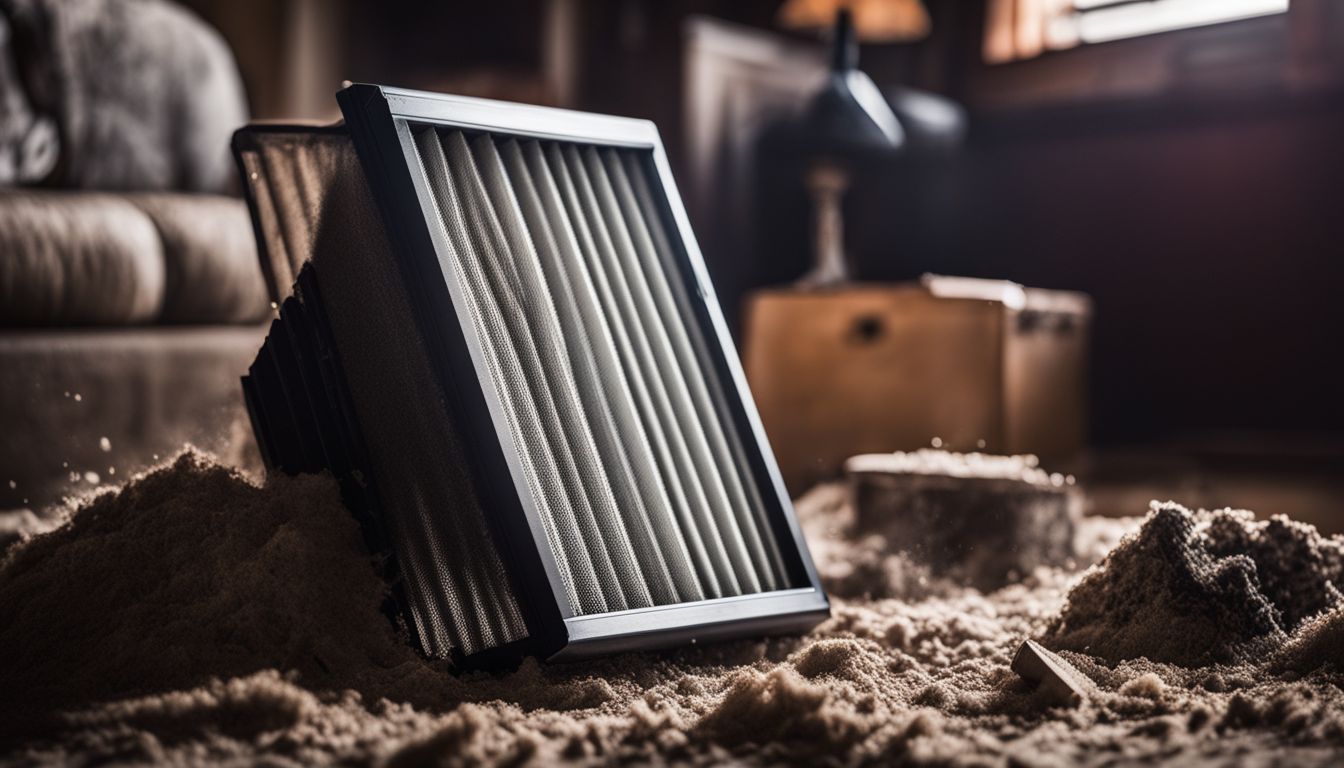
Your air conditioner relies on steady airflow to keep the evaporator coils from freezing. If the flow of air through your AC system is blocked, these coils can’t absorb enough heat and may ice up.
Blocked or dirty air ducts, malfunctioning blower fans, and clogged filters are often culprits behind restricted airflow. It’s crucial for heating and cooling systems to have unobstructed paths to function efficiently.
Ensuring that your home has quality heating, cooling & plumbing arrangements includes regular checks on the fan setting of your AC unit. The blower fan must operate properly to push air over the coils effectively.
Inspect it periodically for signs of wear or damage. Watch out for sluggish fan blades or unusual noises, as these can signal impending problems with airflow that could lead to frozen evaporator coils in your furnace or heat pumps.
Recognising Warning Indicators of an Overworked AC
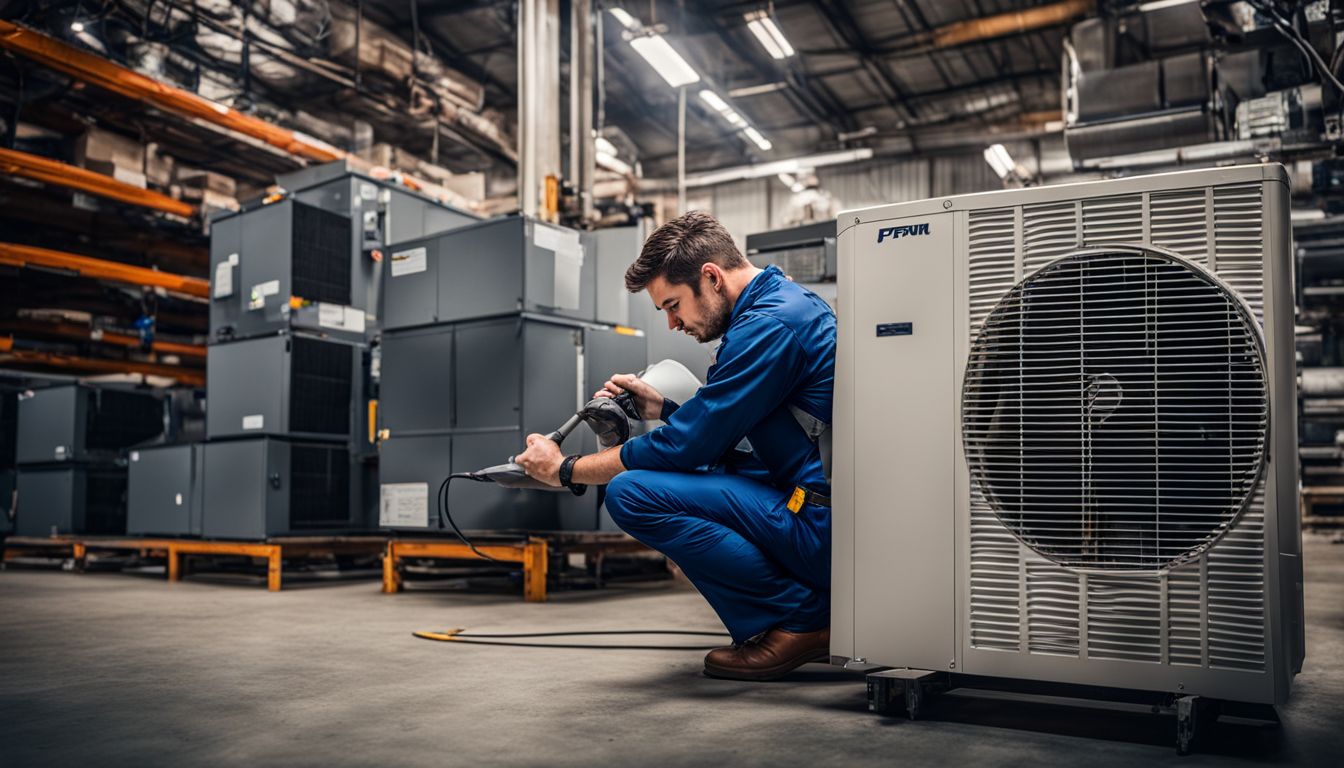
An overworked AC often struggles to maintain the desired temperature, making it run longer and work harder than usual. This constant strain may lead to frequent cycling on and off, which can wear out components faster.
Listen for unusual noises coming from your air conditioner; clanking or grinding sounds could signal that internal parts are malfunctioning. Pay attention if the airflow seems weaker than normal or if certain rooms in your home aren’t cooling down as they should.
Excessive humidity inside your house indicates that the AC isn’t efficiently removing moisture from the air. Keep an eye on your electricity bills too; a sudden increase might be due to the air conditioner consuming more power to compensate for its declining efficiency.
If you notice water leaks around your system, this could be a tell-tale sign of iced-up coils or blocked condensate drains causing overflow problems – both stemming from an overtaxed unit.
Regular preventative maintenance is crucial to avoid pushing your AC beyond its limits and ensuring a long-lasting, efficient system.
DIY Fixes for Frozen Evaporator Coils
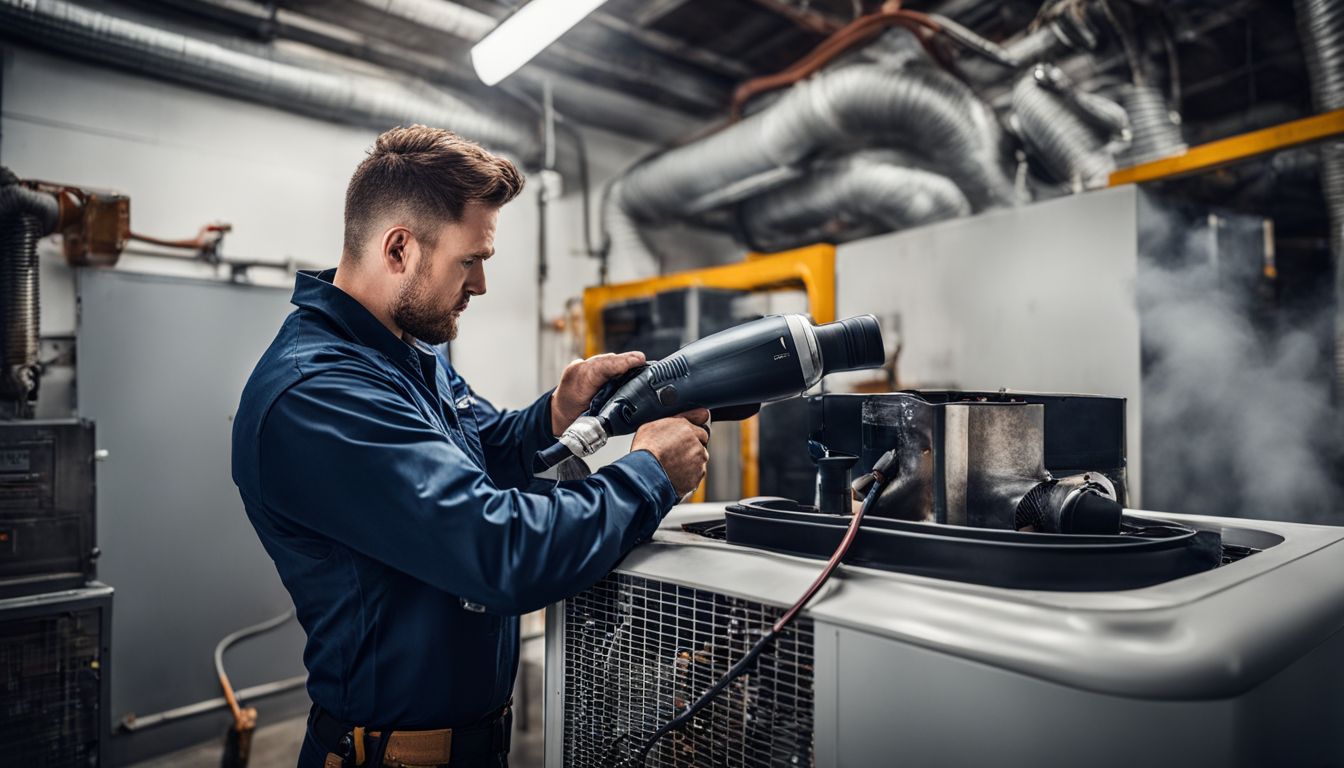
5. DIY Fixes for Frozen Evaporator Coils: Tackle the chill of a frozen evaporator coil head-on with simple, actionable steps that restore your air conditioner’s health and ensure a comfortable home environment.
Turning Off the AC Unit
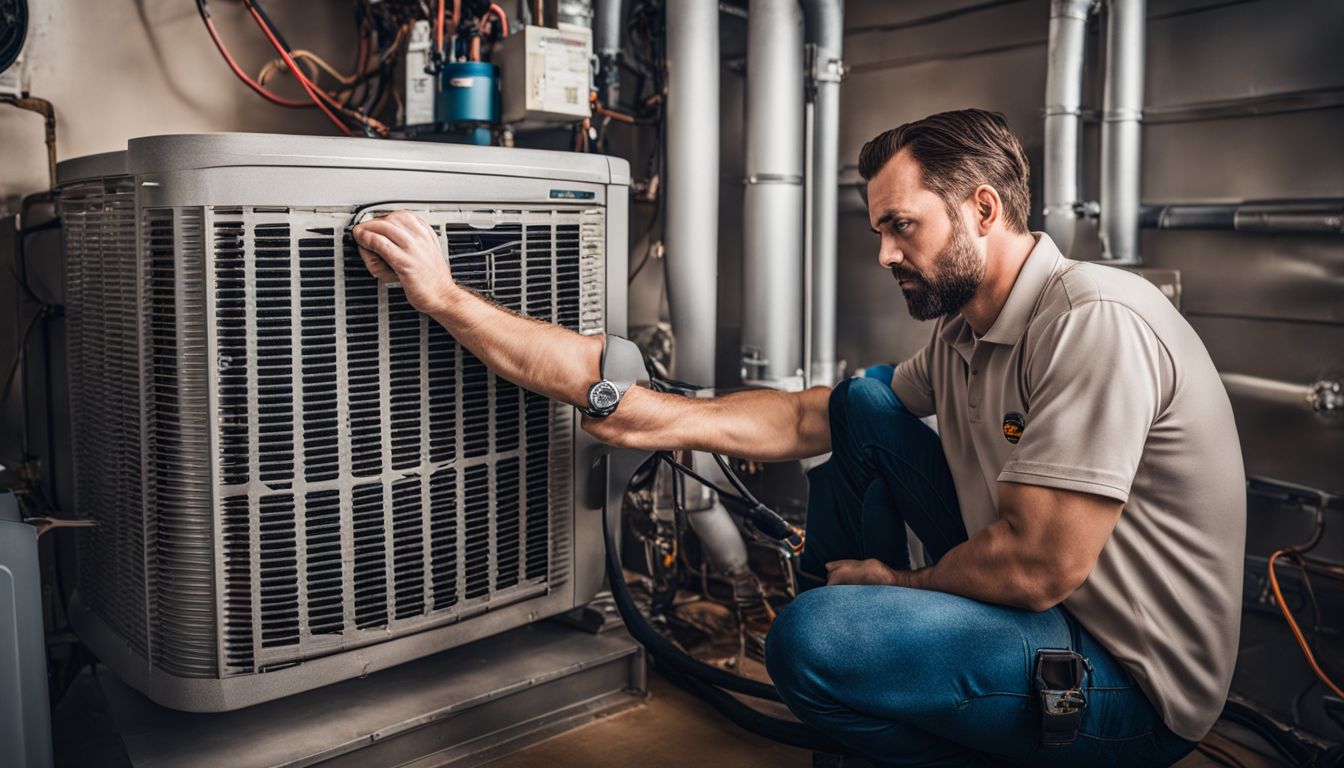
Turning off the AC unit is an essential immediate action once you identify frozen evaporator coils. This step halts any further damage and gives the components a chance to defrost naturally.
Simply locate your thermostat and switch the air conditioner off. While it might be tempting to continue running the system in hopes that it will work through the frost, doing so can strain your equipment even more.
As your unit powers down, it stops adding additional ice to the coils, preventing potential refrigerant leaks or damage to other parts like the air handler unit or condenser coil. Without constant cooling cycles, heat from the surrounding air gradually melts away built-up ice on dirty evaporator coils.
This process can take several hours, but patience here is key for a safe and effective thaw without risking harm to delicate components within your heating and cooling machinery.
Checking and Cleaning Filters
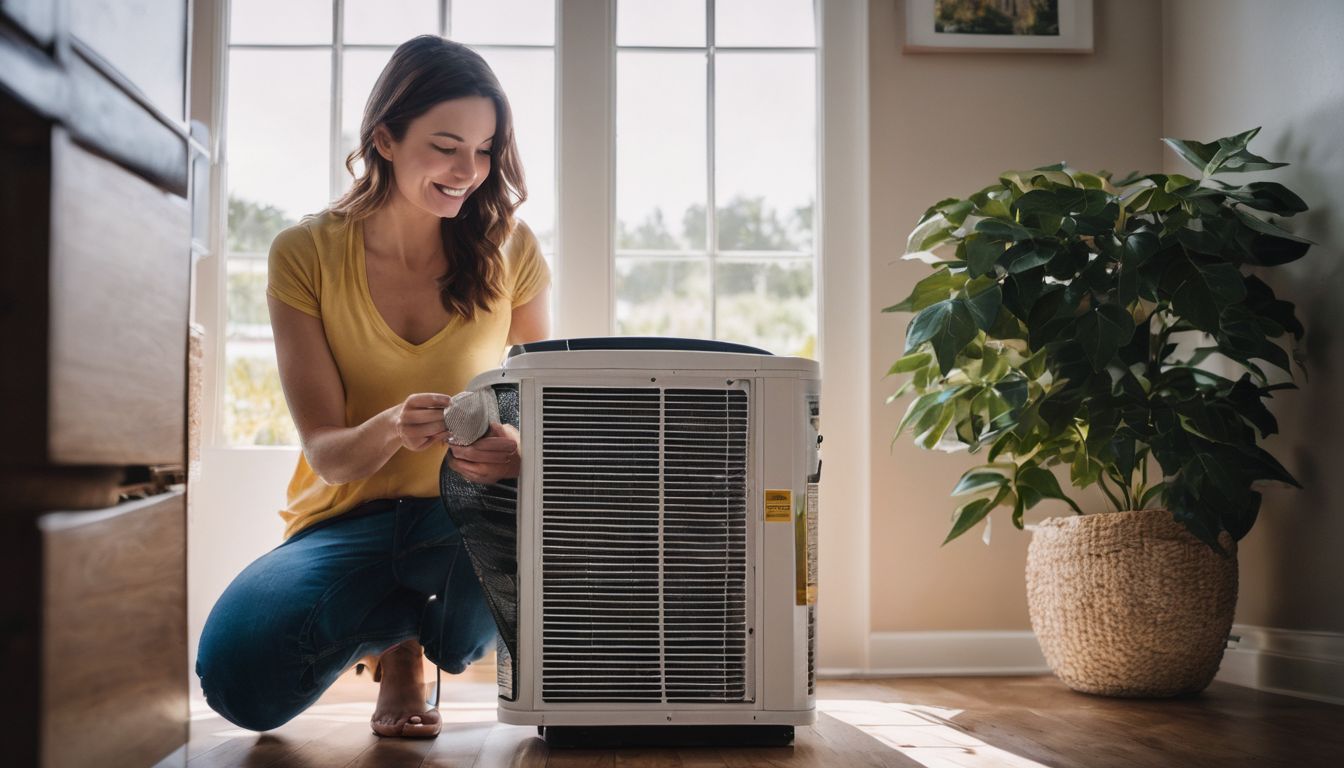
Regular maintenance of your AC’s filters can stave off those pesky frozen evaporator coils. Clogged filters are notorious for hindering airflow and messing with the heat exchange process, both culprits in causing your unit to freeze.
To keep your air conditioner running smoothly, take out the filter and inspect it for dirt build-up. If it looks grimy, give it a good cleaning or replace it if necessary. Clean filters ensure that less dirt reaches the evaporator coils, drastically reducing the chances of a freeze-up.
Perform this simple check at regular intervals; experts often recommend once a month, especially during peak usage seasons. This DIY task doesn’t just prevent freezing; it also promotes efficient performance from your AC system.
By ensuring these components are clean, you’re fostering quality heating, cooling & plumbing throughout your space while warding off potential malfunctions in central Florida’s sweltering climate or wherever you might be relying on that much-needed coolness indoors.
Allowing Time for Coils to Thaw
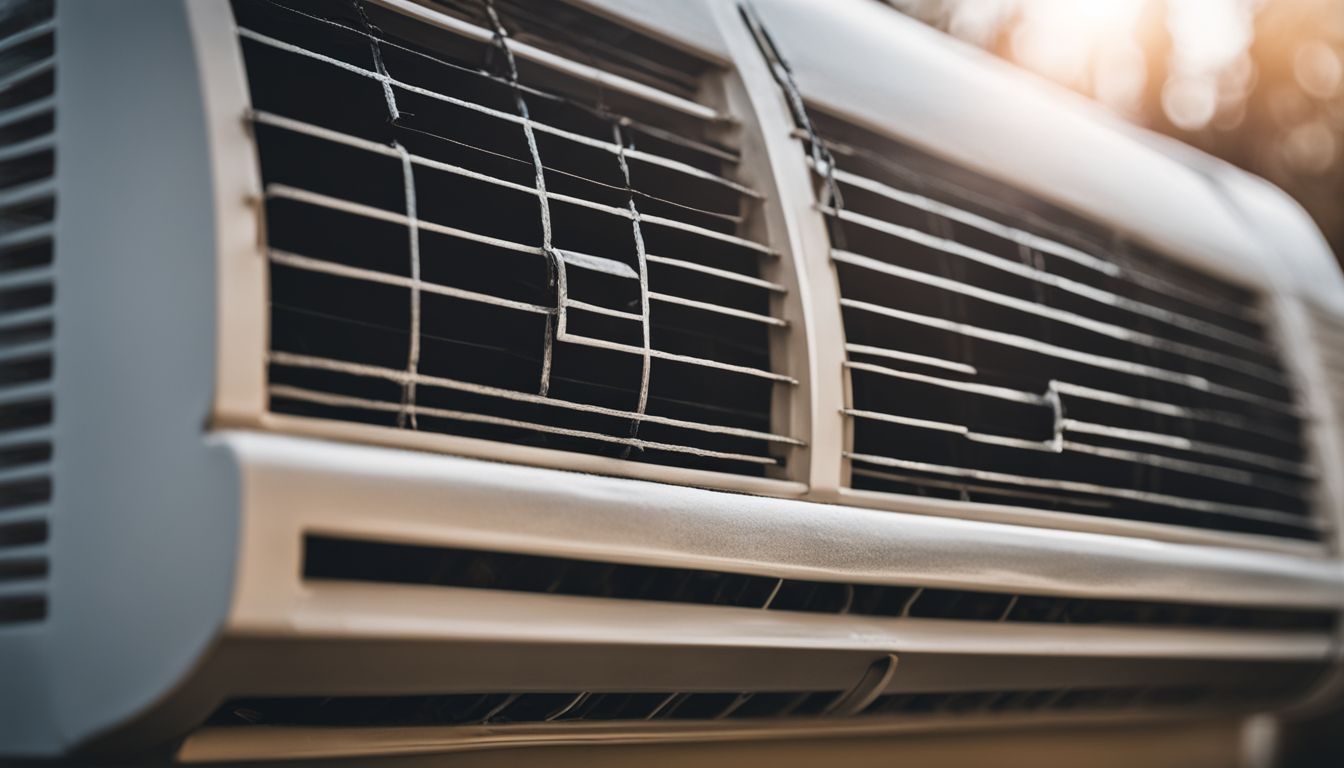
Turning off your air conditioner is a crucial first step to deal with frozen coils. Cutting power at the circuit breaker ensures that the entire system stops running, which gives the ice on the evaporator coils a chance to melt away.
Patience plays a key role here as it can take several hours, up to 24 in some cases, for all of the ice to thaw out completely.
Keep an eye on your unit as it defrosts to prevent any water damage from occurring due to drips and leaks. Position towels or a tray underneath if necessary. During this time, avoid poking or scraping at the icy build-up on the coils; such actions could damage them further.
Allow nature’s warmth and time to gently defrost your AC’s vital components before attempting any other troubleshooting steps or turning your system back on.
Conclusion
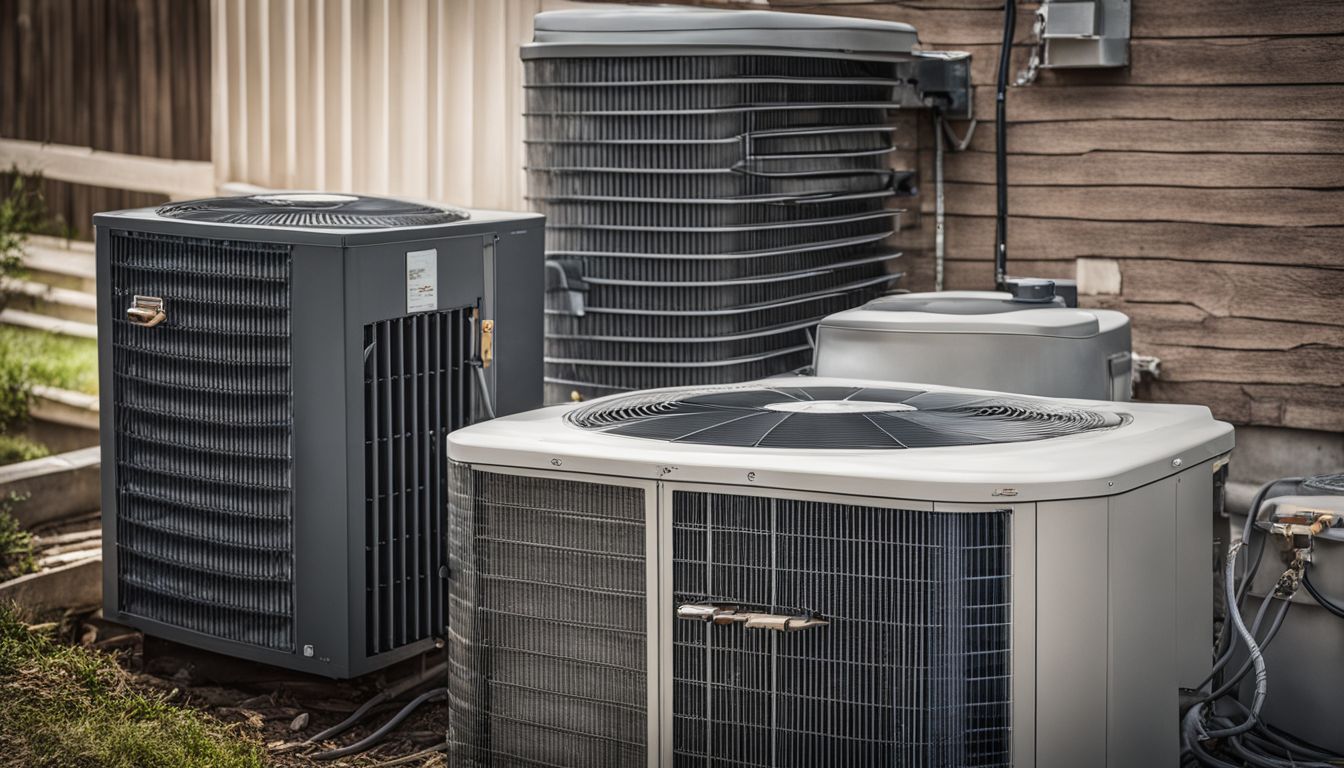
In tackling frozen evaporator coils, prompt action can save your air conditioner from damage. Keep a keen eye on airflow and maintain clean filters to prevent future freeze-ups. If you find your coils iced over, safely thaw them out as a first step to restoration.
Remember to inspect refrigerant levels regularly and address any leaks promptly. Through consistent care, you safeguard the longevity of your AC system against the chill of frozen evaporator coils.
If you’re concerned about the health of your air conditioner, be sure to read our guide on recognising warning indicators of an overworked AC.
FAQs
1. Why do evaporator coils in air conditioners freeze?
Evaporator coils in AC units can freeze due to a lack of airflow from dirty coils or malfunctioning fans, which makes the moisture on them condense and then freeze.
2. Can I fix frozen evaporator coils at home by myself?
Yes, you can try to thaw out your AC’s frozen coils by turning off the unit and letting them defrost naturally, or using heaters or hairdryers to speed up the process carefully.
3. What should I look for when checking my AC for frozen coils?
When you check your air conditioner for issues, see if there’s ice buildup—this usually means the evaporator coils are too cold and need attention.
4. How does regular laundry affect my air conditioners’ performance?
Doing lots of laundry could increase humidity levels around your air conditioners, causing more moisture that might make those delicate evaporator coils inside freeze up faster.

